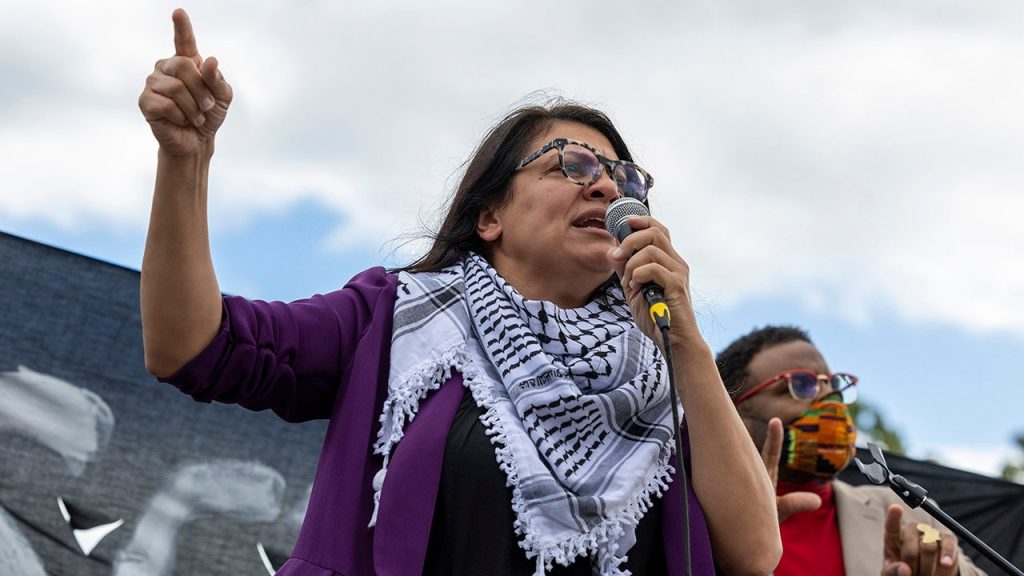U.S. Rep. Rashida Tlaib, a Democrat from Michigan, criticized American universities for their response to anti-Israel protests on campuses, where protesters have engaged in antisemitic behavior. Tlaib expressed her outrage on social media in response to a post by Isra Hirsi, the daughter of Rep. Ilhan Omar, who said she was suspended from Barnard College and arrested for protesting against Israel at Columbia University. Tlaib, who has Palestinian roots, has been vocal in her criticisms of Israel and its leaders in light of the recent conflict with Hamas.
Tlaib called on the Biden administration to stop supplying arms to Israel, accusing the U.S. of actively participating in what she describes as a genocide. Despite her concerns about how universities are handling student protests, she has been criticized for not addressing the antisemitism that has been observed at some of these demonstrations, where Jewish students have been targeted. Some anti-Israel supporters have called for an “intifada,” or uprising, and for the destruction of the Jewish state, causing further tension on college campuses.
Criticism of Tlaib’s stance on Israel and her calls for a ceasefire have led to accusations of antisemitism. She has faced backlash for her comments following Hamas’ attack on Israel, as well as for accusing Israel of committing genocide and making controversial statements about Israel targeting a hospital in Gaza. Despite facing criticism from fellow Democrats and Jewish groups for her remarks, Tlaib maintains that she is advocating for justice and dignity for all people, regardless of faith or ethnicity.
Tlaib’s refusal to acknowledge the violent reality faced by Palestinians living under siege and occupation has further fueled the debate surrounding her views on Israel. She stands by her assertion that as long as the U.S. continues to provide unconditional funding to Israel, the cycle of violence in the region will persist. Her comments have sparked controversy and debate among politicians, activists, and advocacy groups on both sides of the Israeli-Palestinian conflict.
Critics have accused Tlaib of promoting antisemitic rhetoric by not denouncing the antisemitism seen at some anti-Israel protests and by using language that they say is supportive of the eradication of Israel. Tlaib’s office did not immediately respond to requests for comment on the matter. The ongoing tensions in the Middle East and the role of the U.S. in the conflict continue to be key points of contention for lawmakers and advocates across the political spectrum, with Tlaib’s outspoken criticism of Israel drawing both supporters and detractors.













